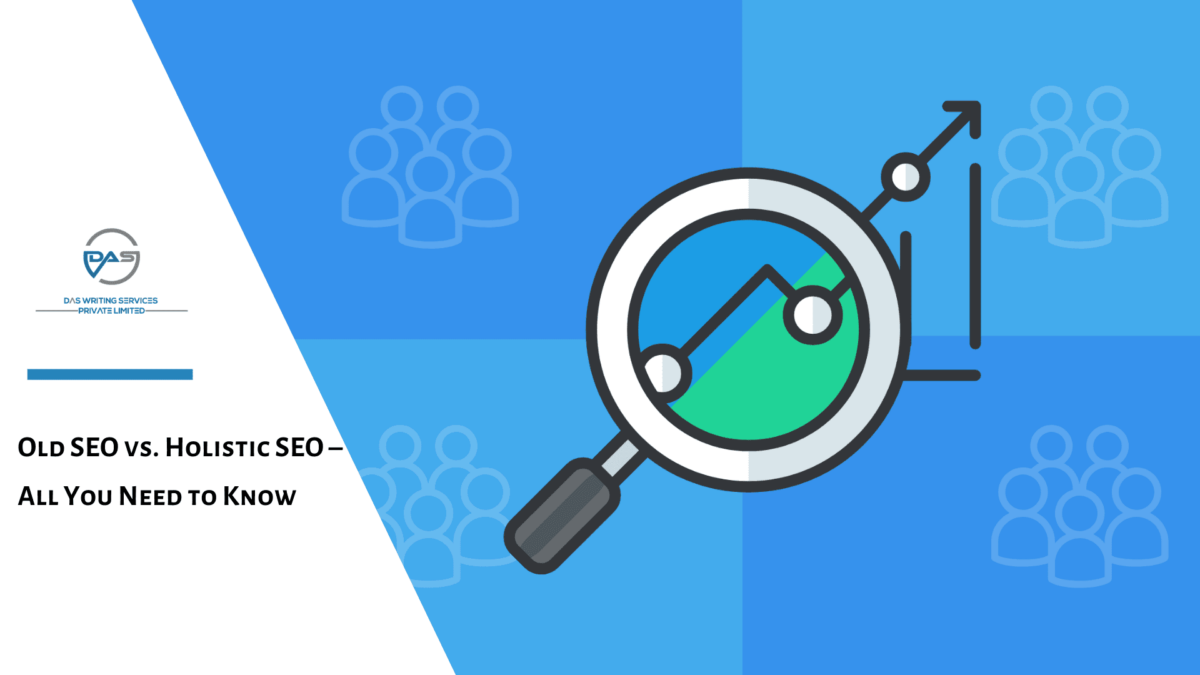Content developers and webmasters started relying on Search engine optimization techniques to optimize websites in the mid-1990s. The traditional approach focused on the usage of keywords to get a high ranking in the search engine. It relied on the approach of constantly changing Google algorithms.
While this has been the approach for long, the present time in 2020 has witnessed a difference in the approach of SEO. In this holistic SEO approach, digital marketers have realised the impact of creating quality content and content marketing. Consequently, it is about time that digital marketers upgrade or change their SEO strategies to get the desired result.
How Traditional SEO Function?

The traditional SEO process functions in the following structure –
- Research primary, secondary, and LSI keywords using Google Analytics and other tools.
- Creating the structure of each page on a website.
- Optimising the pages for primary keywords (On-site SEO).
- Link building for all the main pages and landing page.
- Improving with time as search engines take some time to read the changes.
- Analysing site performance, traffic, and ranking.
Shortcoming –
While the traditional approach has helped webmasters improve their site’s performance in the search engine in the past years, the scenario isn’t the same anymore. In this old SEO technique, the strict focus was on keywords and not on satisfying customer needs and providing valued results.
Small Biz Trends reports that about 70% of the searches made online are focused on long-tail keywords and rest 30% on short keywords. Since the traditional approach doesn’t follow the implementation of long-tail keywords explicitly, it misses a lot of traffic coming their way.
A few other limitations of using traditional Search marketing techniques are –
- It doesn’t do justice to the needs of users who make a search query using the keywords and are more concerned with ranking.
- It might affect other Internet marketing campaigns, such as social media marketing, personal branding, etc.
- The link-building techniques here can be considered shallow as they focus on the quantity of links from any possible sources.
How Holistic SEO Function?
Holistic SEO is the improved Organic search technique available to digital marketers in the present time. Its focus is on improving the quality of search and providing optimum experience to search users and not on search engine or keywords.
The holistic SEO process functions in the following structure –
- Discovery of opportunities.
- Development of content strategically.
- Performing technical developments.
- Implementing social strategy.
- Measuring or evaluating the process.
- Optimising sites as per Local SEO trends.
Advantages of Holistic SEO over Old SEO Techniques
The holistic SEO approach is a more realistic and beneficial technique of optimizing your website for improved search results. Here, look at a few reasons why they are better.
- Search intent of users
According to a report presented by Small Biz Trends, using long-tail keywords can help you rank quickly even if they have a comparatively low search volume. Nonetheless, more users now search with long-tail keywords, which are capable of understanding the user intent well and produce results accordingly. In this holistic SEO approach, the user performing a search will get more relevant and accurate results.
- Semantic approach for Backlinks
While old SEO techniques relied on shallow link building strategies, here, the approach is rather semantic. Unlike before, backlinks are created from appropriate and relevant sites only and not from any and every site.
- Improved content marketing
Unlike the old SEO technique, you can practice Holistic SEO technique alongside other content marketing strategies, such as Pay-per-click.

Subsequently, these are a few differences between traditional and holistic SEO techniques. Implicating the Holistic SEO approach can help businesses up their game and perform better than their competitor in the digital platform.
Conclusion –
About 70% of users make search queries using long-tail keywords and hence digital marketers find holistic SEO techniques more viable than old or conventional SEO techniques.




Leave a comment